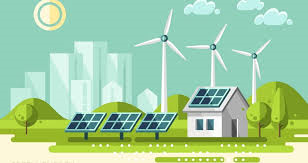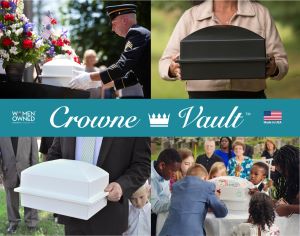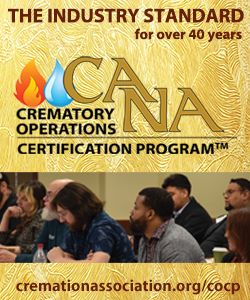The Green Funeral. . . a contrarian view?

The Washington Post recently printed this article which in part said, “. . . .a distinct shift is underway in how we approach death. More than half of Americans are seeking greener funerals, according to the National Funeral Directors Association, and the percentage is rising. The funeral industry is responding: You can now be entombed in a coral reef. Donated to science. Freeze-dried and shattered into thousands of pieces. Set adrift in an ice urn. “Purified” by mushroom suits. Or, in a return to the past, simply buried in your backyard.”
Part of my duties as an entrepreneur, content editor, and writer for Funeral Director Daily is searching out interesting topics to disseminate to the many and varied interests of all those who follow Funeral Director Daily. That searching leads me to come across all kinds of articles on the Death Care profession.
In the past year I’m just guessing that a full one-third of all the articles that I come across pertain in some shape, matter, or form to the “Greening of Death Care”. That category would cover legislation to approve alkaline hydrolysis or natural organic reduction in various states. It would cover articles that tell of historic cemeteries turning over a portion of their land for the exclusive use of “green burials”. It would cover articles that tell of potential flame cremation businesses being denied building and/or operating permits by civic authorities.
Much like elsewhere in the American economy today. . . .”Green” is getting a lot of attention in the Death Care media.
And, don’t get me wrong. . .I think there is a bright future in “green” death care options. Just like there is a future in solar power, wind power, and EV automobiles.
I would say that I am like most people. . . I’m all for ecology and saving the planet. . and doing what is right for the environment. However, like most people, I also think I am pretty practical. I’m not against an electric car, but I don’t like the impracticality of not being able to drive more than a couple of hundred miles without stopping for a couple of hours of charging. And, I’m not ignorant to the fact that the electricity for charging that car may be supplied by fossil fuel or coal derived energy. Using that scenario, how much “green” am I providing in the overall scheme of things?
The writer of the above linked article asks that same question about Death Care wishes. He will admit that Natural Organic Reduction or Alkaline Hydrolysis is more environmentally friendly in the overall scheme of things than casket burial or flame cremation. He also points, however, to a study from the Netherlands that questioned the focus on funeral choice emissions in its entirety. He makes his case with this statement, “The most carbon-intensive conventional burial represents just over 0.03 percent of the average Dutch citizen’s lifetime emissions. In the United States, where per capita emissions are about twice as high, this share would probably be even lower.”
Some people will always do what is best for the environment and I conclude that is a good thing. However, the author of the article says this, “Ultimately, one eco-friendly burial will not outweigh a lifetime of emissions. So choose a green funeral, if you wish. But from a climate perspective, the way you live will always eclipse what happens after you die.”
Related — “From death comes life”: The human composting campaigners lighting the way to a greener afterworld. Euronews.green
More news from the world of Death Care:
- Nearly two-thirds of over 50s worried about inflating insurance premiums. IFA Magazine (Great Britain)
- Hess assumes role as funeral director with Twiford Funeral Homes. Beach 104 Radio (NC)
- Texas funeral home sued after man’s body left to “literally rot” for days during winter storm. Globe World News Echo
Enter your e-mail below to join the 3,156 others who receive Funeral Director Daily articles daily:




















